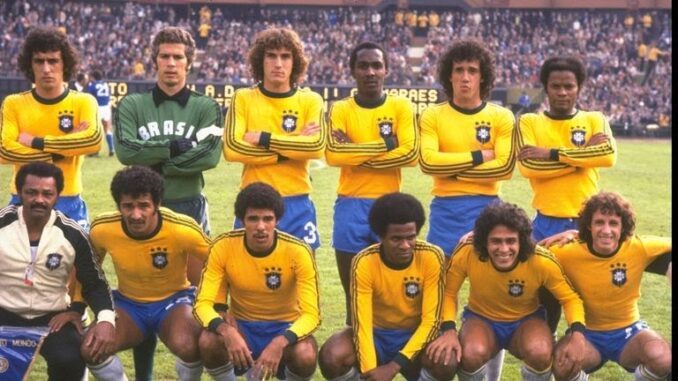
Brazil Struggled to Deliver Their Trademark Entertaining Football in the 1978 World Cup
The 1978 FIFA World Cup in Argentina remains a bittersweet memory for Brazilian football fans. While Brazil is historically known for its flamboyant, attacking style of play—often dubbed “the beautiful game”—the team of 1978 could not fully live up to those expectations. Despite a solid run that saw them finish in third place, the tournament is remembered for Brazil’s more pragmatic approach, which stood in stark contrast to their free-flowing football of previous World Cups.
Heading into the tournament, Brazil was still seen as a powerhouse, buoyed by their legacy from the 1970 World Cup when they delivered one of the most spectacular displays of football ever seen. However, by 1978, the team faced a transition period, with several stars from the past no longer in the squad. Manager Cláudio Coutinho was tasked with balancing results and style, but as the tournament progressed, it became evident that Brazil struggled to ignite the flair they were famous for.
Brazil’s campaign was marked by a string of low-scoring games and a more cautious tactical approach. In the group stages, they opened with two disappointing 1-1 draws against Sweden and Spain, followed by a narrow 1-0 victory over Austria. These performances were efficient but uninspired, with Brazil’s attack often stifled by opponents’ defenses. The lack of creativity in midfield and forward play frustrated fans who were used to seeing Brazilian teams dominate with skill and flair.
In the second round of the tournament, Brazil improved slightly, securing victories over Peru (3-0) and Poland (3-1). However, their inability to match Argentina’s goal difference in the final round-robin match led to controversy. Argentina, who needed a significant margin of victory to advance, thrashed Peru 6-0 under questionable circumstances, edging Brazil out of the final. Brazil’s 2-1 win over Poland was not enough, and they were forced to settle for the third-place play-off.
Brazil ultimately finished third after defeating Italy 2-1, but the tournament left a lingering sense of disappointment. While the team was defensively solid, with the likes of Zico, Rivellino, and Dirceu offering moments of brilliance, they could not consistently inspire the same awe as previous Brazilian teams. Coutinho’s emphasis on tactics over flair was criticized, as it seemed to stifle the natural creativity that had become synonymous with Brazilian football.
The 1978 World Cup remains one of the few tournaments where Brazil was unable to capture the hearts of neutral fans with their typical artistry on the pitch. The pragmatic approach may have delivered results, but it came at the expense of the thrilling football that had defined the nation’s identity on the global stage.
In the end, while Brazil walked away with a respectable third-place finish, the 1978 squad is often seen as a team that underachieved in terms of entertainment, leaving fans yearning for a return to the “beautiful game” they had become accustomed to. The tournament served as a reminder that even footballing giants like Brazil can have periods where practicality overtakes panache, but the longing for their signature style would soon lead to a resurgence in future World Cups.
Read more on;https://sportupdates.co.uk

Leave a Reply